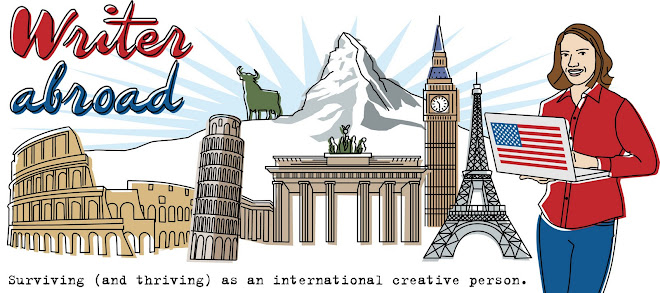 |
| Breaking New Grounds |
Writer
Abroad does not believe in writer’s block or in waiting for inspiration to
strike. Sure, sometimes inspiration does strike, but it doesn’t happen often
and waiting for it would mean she would never accomplish anything.
Writer
Abroad also believes you can be inspired anywhere. In a dark room with no windows. On a train.
Or in an apartment. But it doesn’t hurt to seek an inspiring place to write
sometimes.
Which brings us to Ogunquit, Maine and the most amazing coffee shop for writing that Writer Abroad has ever worked in. It’s called Breaking New Grounds. The pumpkin gelato is as great as the view. In case you don’t believe her, the view is below. Add in free Wi-Fi and an ocean view and you have a great place for working—if one of the most beautiful spots in the U.S. doesn’t distract you, that is.
 |
| View from Breaking New Grounds |
Ogunquit
has a history of inspiration—artists have come here to paint for decades. It’s
gorgeous. And there’s a 1.25-mile path along the ocean, called Marginal Way. Contemplate
work or chat with a friend on one (or all) of over 40 benches along this path
from Perkins Cove to Shore Road.
This
morning, before going to Breaking New Grounds, Writer Abroad ran along the
Marginal Way and then took off her running shoes to run on the beach. The cold
water soothed both her feet and her spirit. Sounds cliché but it’s proof that
clichés can be great for inspiration too.

